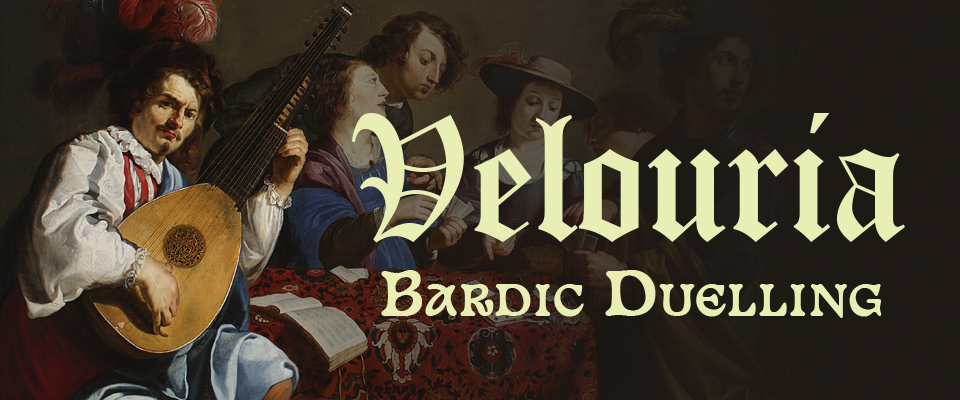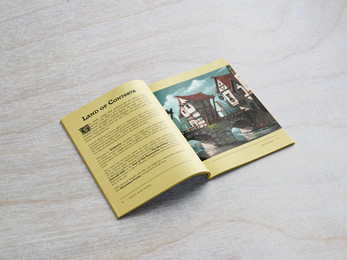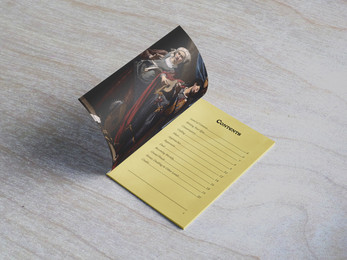
Velouria, Bardic Duelling
A downloadable game
In Velouria we tell tales of bards chasing fame and their eventual triumph in the annual contest held at the Emerald Hall. To get to this point, there will be plenty of days on the road taking inspiration from the scenery, plenty of duelling in the dingy pubs of small towns, and many harvest day concerts in the countryside. Each crowd has their preference and each bard their style. What is yours?
Free portuguese version made for #RPGJAM2020 Brazil here: https://drive.google.com/file/d/1D_3n-w70I2_-qxRR7CjXWaZiadXOMRuj/view?usp=shari...
Velouria Companion has released! For more options check Velouria Companion by Gabriel Kerr (itch.io)
| Status | Released |
| Category | Physical game |
| Rating | Rated 5.0 out of 5 stars (9 total ratings) |
| Author | Gabriel Kerr |
| Genre | Role Playing |
| Tags | rpglatam, Tabletop role-playing game |
| Average session | A few hours |
| Multiplayer | Local multiplayer |
Purchase
In order to download this game you must purchase it at or above the minimum price of $9.95 USD. You will get access to the following files:
Exclusive content
Support this game at or above a special price point to receive something exclusive.
Community Copies
Grab a free copy if you can't pay or if you're from the Global South.
Development log
- Velouria Companion releaseSep 15, 2022
- UpdateMar 12, 2021
- Released!Mar 11, 2021



Comments
Log in with itch.io to leave a comment.
Velouria: Bardic Duelling is a game with simple, but very flexible mechanics for resolving non-violent disputes of performance. In this game, you play along a second player: one of you creates a bard, the other plays the Audience.
Bard creation establishes your musical background, your strenghts as a performer, and prompts you to create your works (songs, numbers). This last item scratches an itch (haha!) that I only had scratched with The Sims: the joy of assigning titles to fictional artworks based on their presumed style and genre — which are, in this game, represented by a noun + a descriptor (usually an adjective).
The duels themselves are where the Audience has more decisions: they decide what the public wants to hear, who the bard's aversaries will be, and what numbers they'll play. This is also where the game's dice rolls happen: the Bard player decides a difficulty for their own performance (their ambition to play well), then roll according to their stats to try and reach that difficulty. The duel goes in rounds with both the bard and their adversary making these rolls to get points, and the points are compared at the end of the show to decide who won.
There are also some downtime mechanics: the bard character has to take time and put effort in to transform their worldliness points (acquired both by winning AND losing duels) into better stats and new works.
Finally, the game suggests other performance-like conflicts that could be played with very similar rules: rap battles, circus numbers, court cases, etc. Overall, it creates an interesting imaginative experience for two players that I can easily see being opened up for more participants.